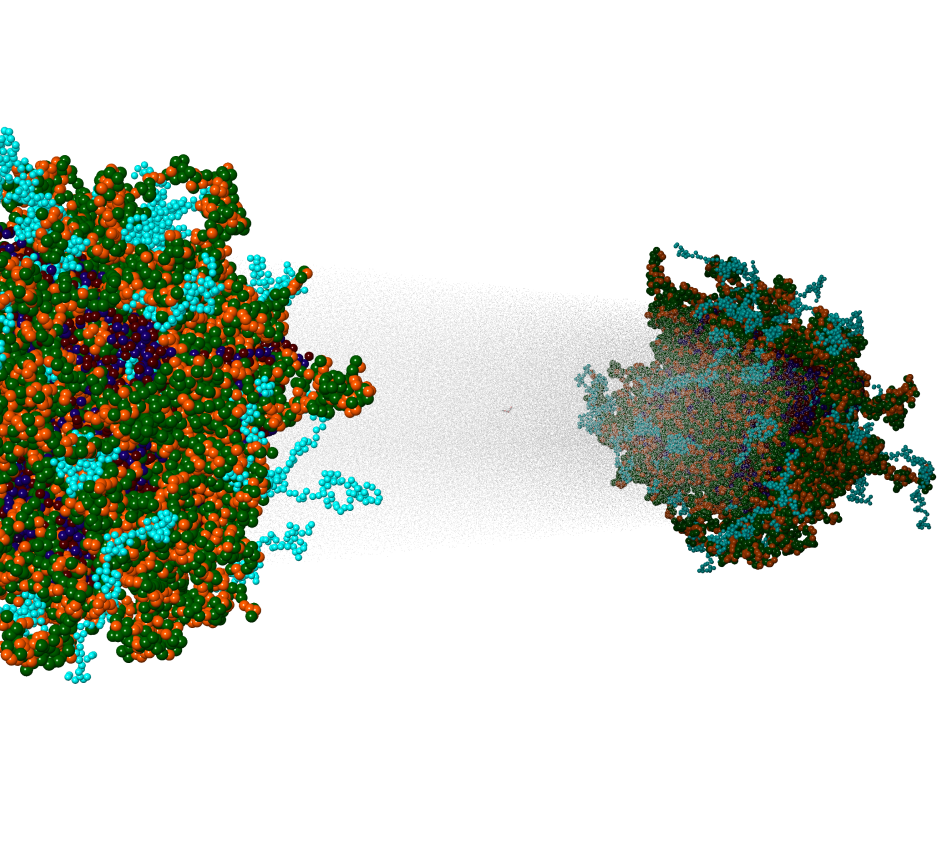MS CG
Efficient coarse-grained (CG) molecular dynamics (MD) simulations for large systems over long time scales

Efficient coarse-grained (CG) molecular dynamics (MD) simulations for large systems over long time scales


Critical phenomena for formulation and chemistry development such as phase separation and liquid structuring can occur at time and length scales that are difficult to access with all-atom (AA) molecular dynamics simulation.
MS CG (Materials Science Coarse-Grained Modeling) is intended for molecular dynamics simulations of larger bulk systems over a more extended period of time than AA models. MS CG provides an infrastructure to draw coarse-grained molecules and map from all-atom to coarse-grained structures, as well as fit and assign coarse-grained force fields.

Discover how Schrödinger technology is being used to solve real-world research challenges.
Get more from your ideas by harnessing the power of large-scale chemical exploration and accurate in silico molecular prediction.
Get answers to common questions and learn best practices for using Schrödinger’s software.

Learn more about the related computational technologies available to progress your research projects.
High-performance molecular dynamics (MD) engine providing high scalability, throughput, and scientific accuracy
Efficient molecular dynamics (MD) simulation tool for predicting liquid viscosity and diffusions of atoms and molecules
A modern, comprehensive force field for accurate molecular simulations
Browse the list of peer-reviewed publications using Schrödinger technology in related application areas.
Level up your skill set with hands-on, online molecular modeling courses. These self-paced courses cover a range of scientific topics and include access to Schrödinger software and support.
Learn how to deploy the technology and best practices of Schrödinger software for your project success. Find training resources, tutorials, quick start guides, videos, and more.